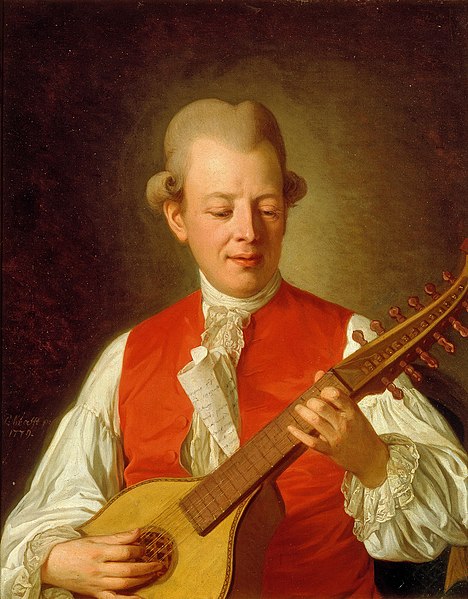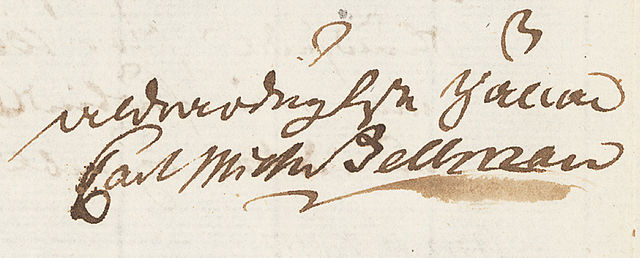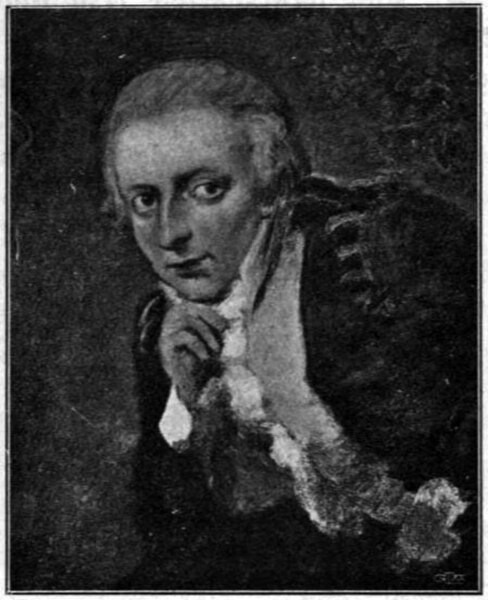Ljuva karneval! is a 2005 book about the work of Sweden's national bard, the 18th century poet and performer Carl Michael Bellman, by the Swedish literary scholar Lars Lönnroth. Bellman is the central figure in Swedish song, known in particular for his 1790 collection, Fredman's Epistles. Lönnroth, who has studied Bellman since the 1960s, aims to give an overview of Bellman's work, describing the essence of Bellman's art: giving a frolicking one-man performance, religious or profane, through adapted tunes, imitated crowd sounds and speech in different languages, and songs in varied genres. He distinguishes carefully between the art and the person of Bellman, who in his view was by no means as drunken and debauched as the cast of his Epistles.
Cover of 1st edition
Lönnroth views Bellman as depicting life as a carnival, choosing this painting attributed to Antonio Verrio, Comédie-Française, 1670 for the inside front cover.
Illustration by Elias Martin of drunken celebrations by the "Order of Bacchus" from Bellman's Bacchi Tempel, 1783, engraved by his brother Johan Fredrik Martin.
Lönnroth shows that Carl Michael Bellman was above all an entertainer, playing many roles. Painting of Bellman entertaining King Gustav III, by Albert Edelfelt, 1884.
Carl Michael Bellman was a Swedish songwriter, composer, musician, poet, and entertainer. He is a central figure in the Swedish song tradition and remains a powerful influence in Swedish music, as well as in Scandinavian literature, to this day. He has been compared to Shakespeare, Beethoven, Mozart, and Hogarth, but his gift, using elegantly rococo classical references in comic contrast to sordid drinking and prostitution—at once regretted and celebrated in song—is unique.
Bellman playing the cittern, in a portrait by Per Krafft, 1779
Bellman's signature
Bellman's birthplace, the Stora Daurerska house in Södermalm, Stockholm. Carl Svante Hallbeck, 1861
Bellman by Elias Martin, 18th century








